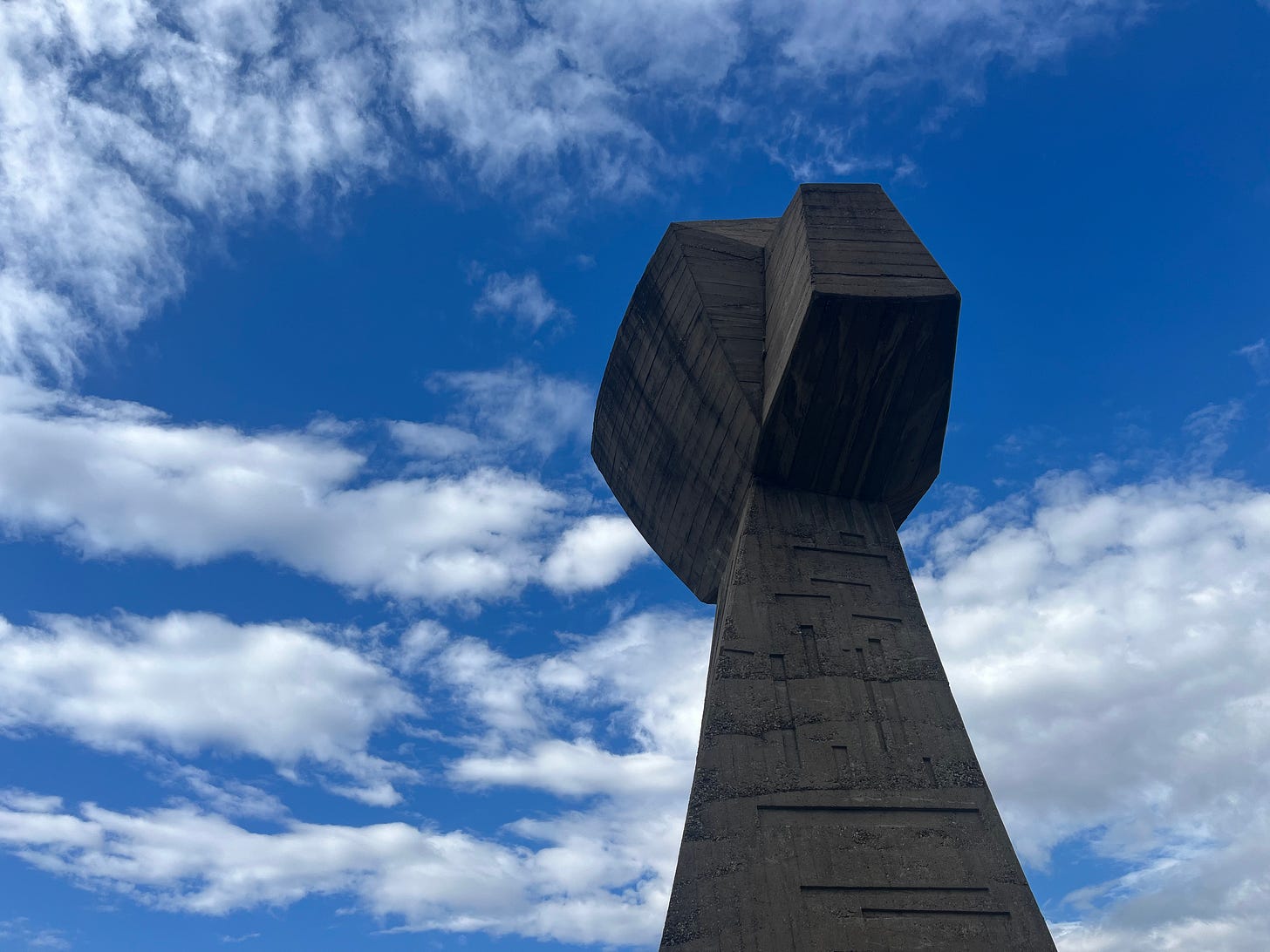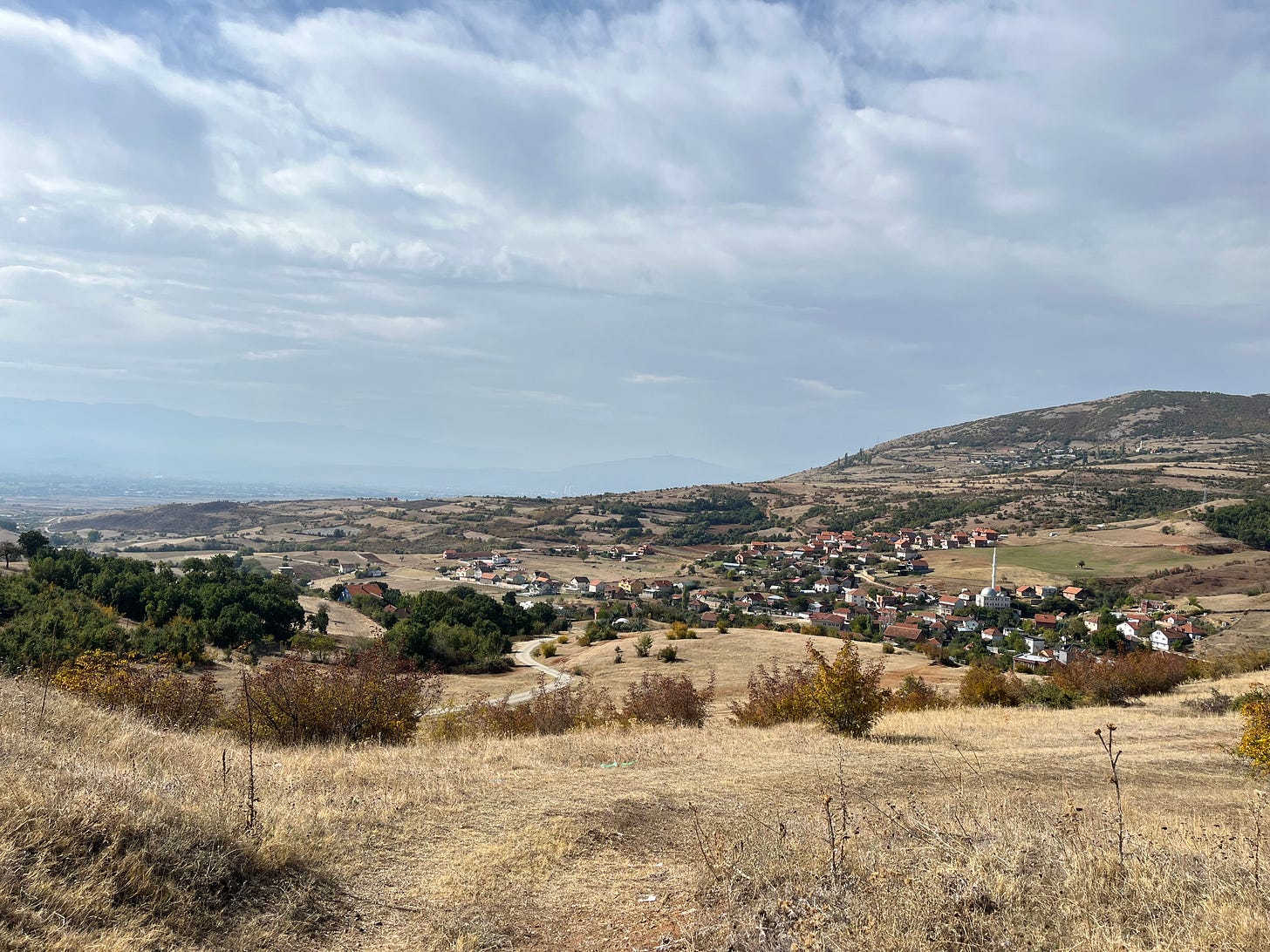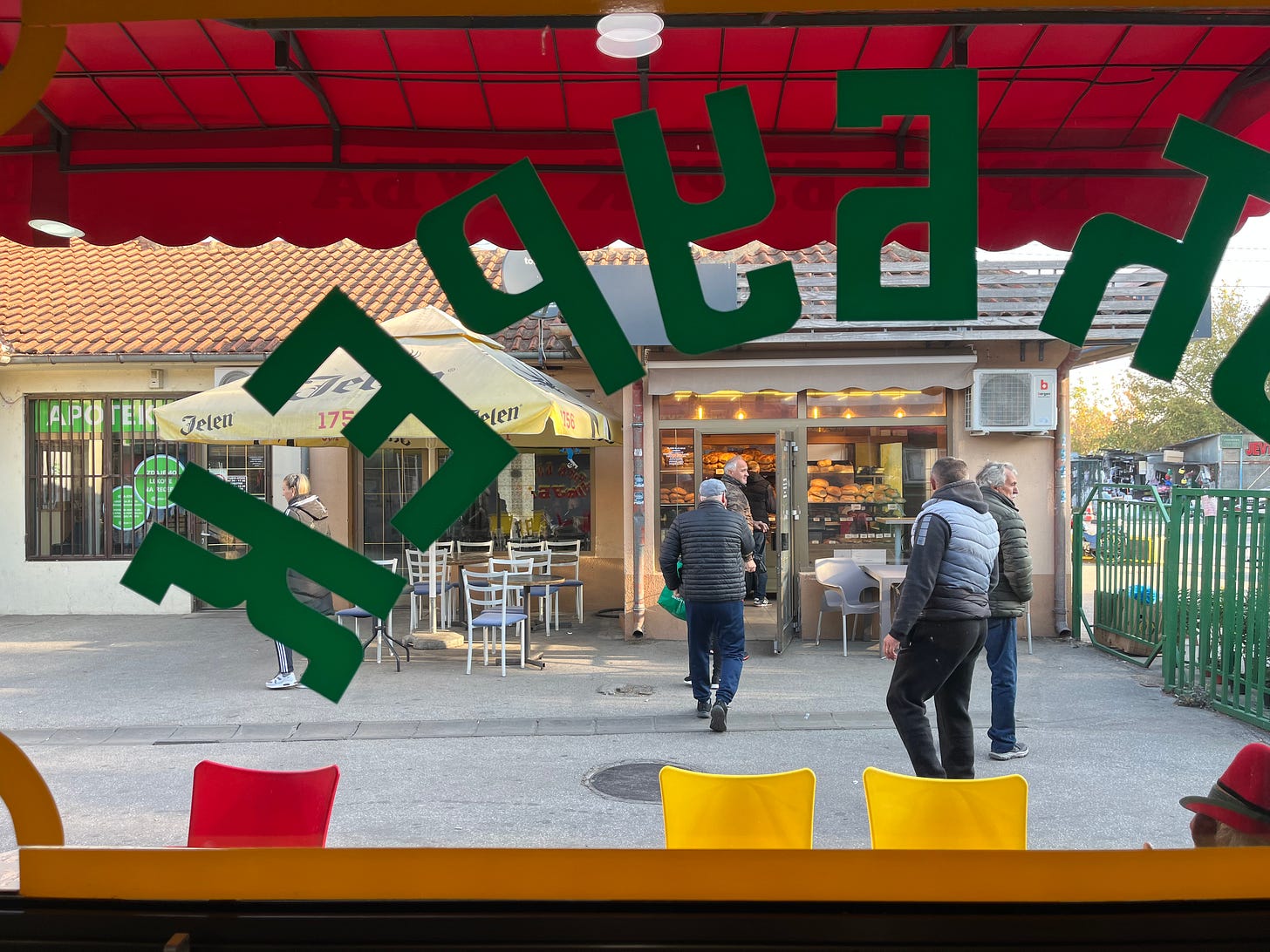#157 | All of us, alike
Skopje, North Macedonia
Today I write from Skopje, North Macedonia. Having just dismounted, I have no idea about the city, nor if its vibrations are any good. I have left southern Serbia’s flat(er)lands (via Smederevo, Nis, Vranje) and am in a new country with a notably similar culture. “Similar” is the word of the week: as I roll past sceneries, peoples and cultures they subtly blend, like an inconspicuous outfit change. In a deeper sense, however, nothing changes: we are all, I now believe, terrifyingly alike. Let me explain.
Assassins Creed, for PlayStation, was released in 2007 when I was 13. In the action-adventure game, I’d roam the authentic sixteenth-century world, jumping across rooftops above babbling markets, murdering merchants. The game used ‘procedural generation’ for its Non-Player Characters, or NPCs. Instead of designing thousands of individuals by hand, the developers created an algorithm — or rules — and the software auto-generated NPCs based on the rules. At launch, Assassins Creed was well known for its detailed environments: they claimed you never see the same person twice. There was such a variety in the diversity of the crowds, both in their look and activities, that the game would, they said, feel real.
But there was a hitch: after not so long, I’d start to see the same person again and again and again. There she is, with her shoddy hessian cloak and hooked nose, carrying water across the town square; and again — impossible — she’s carrying water under the village clock tower. Once more — three of her? with water — behind the bars of a prison from which I had escaped. Once noticed, the world was smaller: the diversity I had anticipated had vanished.
I am now cycling through this journey’s seventh country — (of how many? I don’t know) — and, like my experience with Assassins Creed, I am starting to see patterns. There is a rhythm, a beat, to humankind emerging from the eclectic orchestra of those I meet.
I increasingly recognise strangers. Moreover, I often feel like I’m meeting some essential part of myself. Is the world a mirror? It does indubitably reflect our own energy. But more than that, I’m discovering you, and us, and them, and me, are overwhelmingly similar.
People are alike. In Milan Kundera’s novel Immortality, he writes that if you see two hundred and twenty-three faces side by side, ‘you suddenly realise that it’s all just one face in many variations and that no such thing as an individual ever existed.’ We feel so unique — so irreproducible — with our different names, hair and histories. Yet all humans are 99.9 per cent identical in their genetics (tellingly, bonobos share 98.8 per cent of our DNA). Even our thousand-year cultures, separated by thousand-mile oceans, are increasingly homogenous: two billion people use WhatsApp.
Our faces? Yes, our faces are different. But Kundera explains, ‘The serial number of the human specimen is the face, that accidental and unrepeatable combination of features.’ Our face reflects nothing of what we call the ‘self’, just as two sixteen-digit numbers typed in Arial 10 are simultaneously the same and distinguishable. So we’re a combination of our looks — a generated serial number; our actions — largely imitated and unoriginal like the NPCs; and our ephemeral thoughts. And even though we believe there is an immense range of destinies amongst us, we’re on the same cosmic bus route (if not on the same bus: number 42 perhaps?). We travel to and from the same void, together.

Initially, the observation is ghastly. I want to be original. I am me, Me, and only me. By being unoriginal, I feel infinitesimal and inconsequential. (Hold on, our sobering realisation isn’t bad). There is a great levelling of the human playing field once we recognise a Frenchman in Lyon is confronted with the exact fundamental needs as a young mother in Macedonia. We only need to look past the serial number and the passport, and you will see he wants to take his kid to school each day, to have a doctor he can trust, and to grow old. And that’s it; with all the industrialisation, the backbreaking earth-grinding pace of modernity, what you or I want is the same as what your prehistoric ancestors wanted (even though they couldn’t order it online). They want to feel love and family and peace; I want to feel the same. Like Kundera’s two hundred and twenty-three faces, our differences merge.
As I cycle, two themes arise from conversations with strangers I now recognise at the roadside:
First, people prefer peace: people thrive in peace. Strangers are friendly with their neighbours; then their neighbours get on with their neighbours who — and this is important — are the people who live next door to you. I have now ridden past thousands of houses, and no one wishes to start a war with the family in the adjacent house: they would sooner have peace.
The second theme, which is connected: our politicians are failing us. I am told, repeatedly in cafe’s and over vegetable stands, “Politicians are driving us apart”, “politics is broken”, “they are corrupt”, — and so on. If everyone is dissatisfied with their leaders, why do we not stand up and halt our apparent descent into chaos?
It does feel like chaos. Stefan Zweig, in his excellent novel Beware of Pity, explains groupthink in the context of the outbreak of the Second World War. He tells us that we — as serial numbers — increasingly follow others: ‘It takes far more courage for a man to oppose an organisation than to go along with the crowd. Standing up to it calls for individualism, and individualists are a dying species in these times of progressive organisation and mechanisation.’ Now is a good time for us to recognise, with a global compassion, that we all have the same needs. Zweig’s rare individualists can prevent the political games causing indelible suffering. And perhaps individualists are not so rare? Almost everyone — being 99.9% identical, remember — can stand in opposition.
Live well,
Hector



